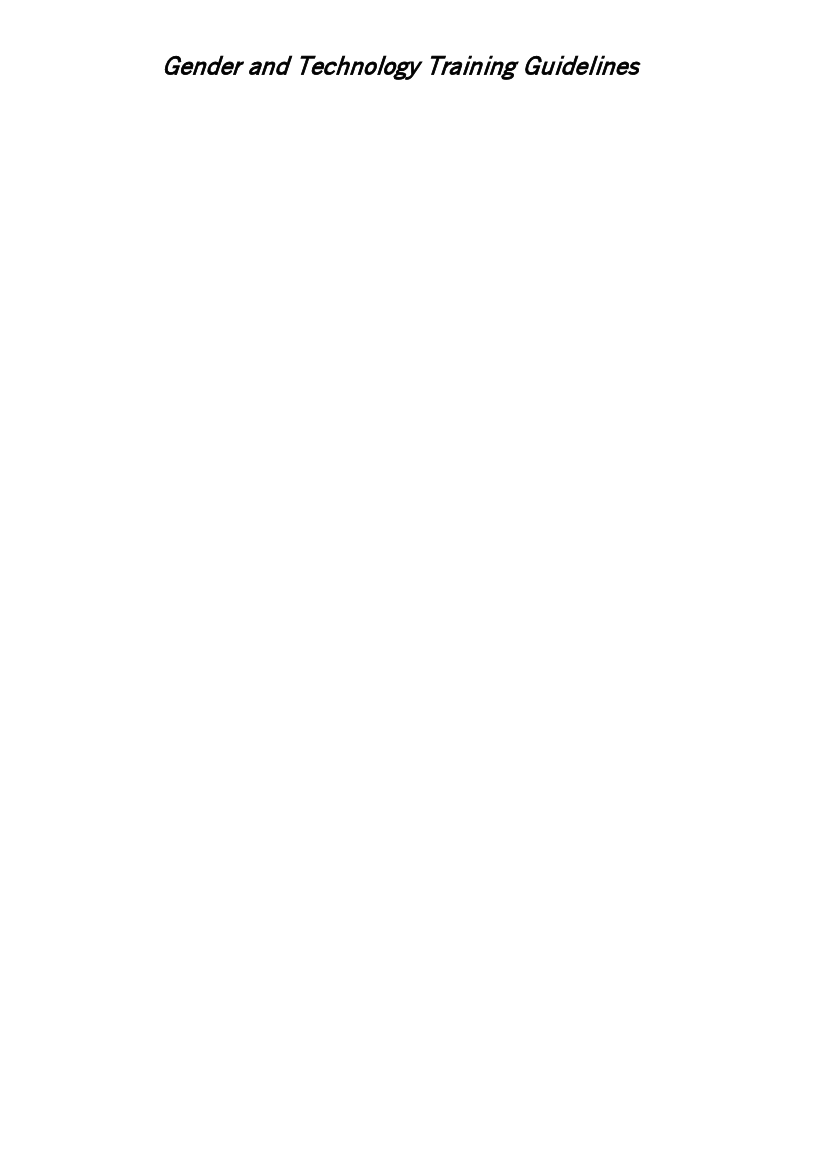
Gender and Technology Training Guidelines
Session 11 - Handout 1
SCENARIO 6
An urban settlement has developed on the outskirts of an industrial area of town.
Rural-urban migrants seeking employment opportunities rely on their own
resourcefulness to find housing solutions. The materials they have are limited and
often the innovative use of recycled waste materials from the city provides some
shelter from the weather.
Many thousands of people live with the threat of eviction as local authorities fail to
recognise this "informal settlement" or the rights of its inhabitants. An NGO has been
facilitating discussion between popular organisations, representing the local
inhabitants, artisans and local government agencies. An active forum has evolved, in
which information exchange and networking are proving to be essential elements of
efforts to influence local policy makers to change their opinion of the settlement and
to work in partnership with men and women residents. The NGO is seeking to develop
an adequate standard of housing for all, persuading the local authority to recognise
appropriate building technologies and accepting standards of construction that will be
accessible to the local residents.
The same NGO, through its programme of technology transfer, aims to introduce a
stabilised soil block machine for self-help construction and, in the longer term, to
create income generating opportunities. Working with local artisans and residents
they hope to introduce this machine by way of a revolving loan scheme. Existing
machines have been studied, and require some strength to use.
In the settlement, 60% of the households are headed by single women who carry the
responsibility for the welfare, nourishment and shelter of their families. They have
little extra time available, but are desperate for opportunities which will enable them
to earn an income. All trained artisans operating locally are men and construction is
seen as a male role. Brickmaking is a relatively well paid occupation. The NGO is
committed to working in partnership with men and women to improve living
standards. What can they do?
59